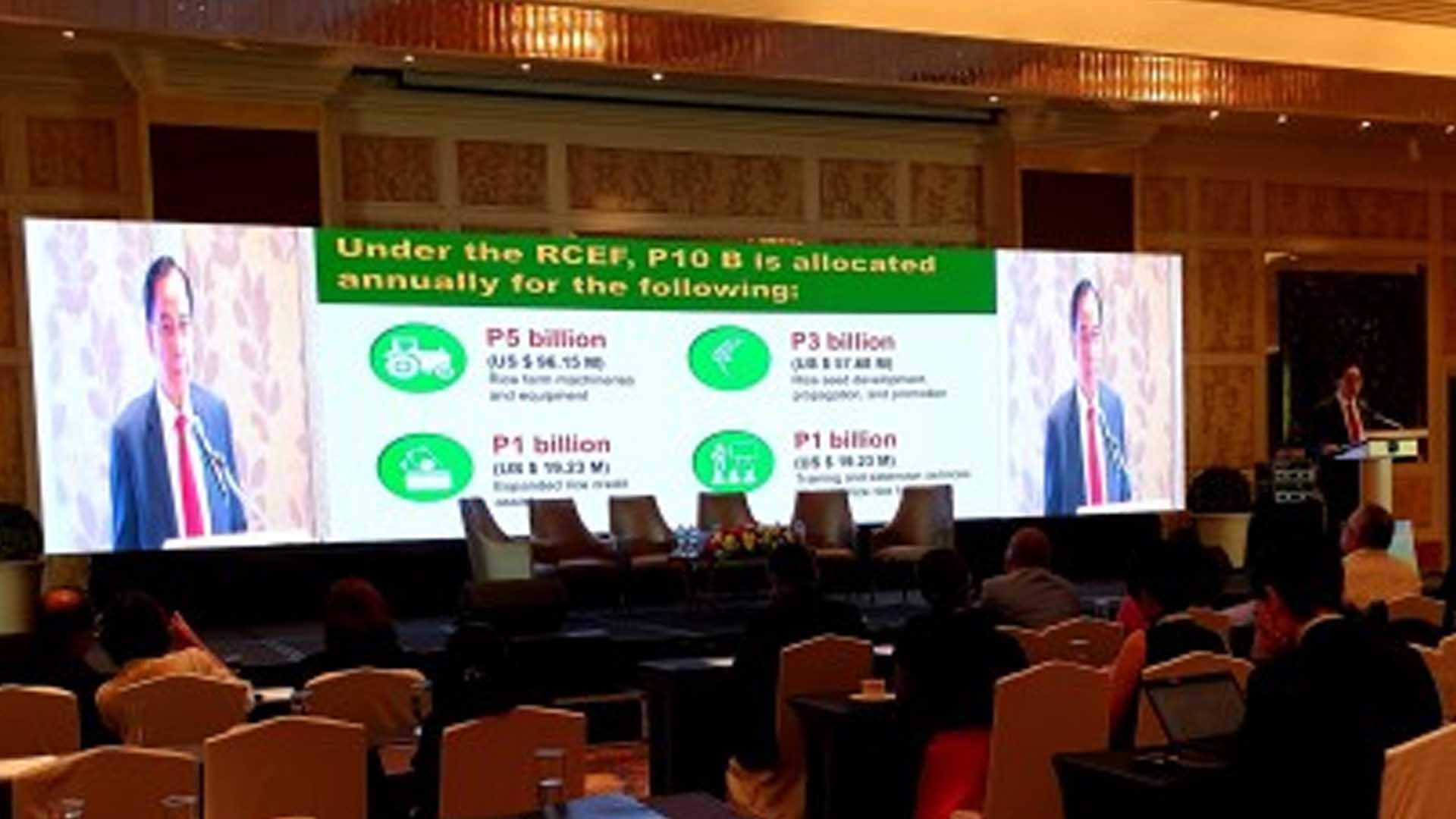The Department of Agriculture (DA) will be implementing stricter sanitary and pythosanitary (SPS) measures on the issuance of import clearance to address the huge entry of imported rice and curb poor quality rice imports.
“I have signed it (guidelines on the issuance of SPS) yesterday, so this will be implemented immediately,” Agriculture Secretary William Dar said on Wednesday at the sidelines of the 11th World Rice Conference held at Makati Shangri-la Hotel.
Dar said the government will be strict and will “continue to elevate our measures before we issue the SPSIC (pythosanitary measures on the issuance of import clearance).”
In January to October this year, the country’s rice imports ballooned to 2.99 million metric tons (MT), which was 150 percent higher in the previous 10 years, he said.
The DA chief further said the “seemingly abnormal shoot up” of rice imports reflects the total rice imports in the country for the year even before the implementation of the rice tariffication law.
“We need to keep rice production profitable and rice prices affordable to a growing consumer market. It is imperative to make our rice production systems more efficient, inclusive, and sustainable,” he said.
Bangko Sentral ng Pilipinas (BSP) Monetary Board member Bruce Tolentino, for his part, said the rules for the issuance of SPS should be agreed upon with trading partners.
“This is the way the trading system works, it is reciprocal. Kung pahihirapan natin sila, pahihirapan din nila tayo (If we cause difficulties to them, they will do the same to us),” he said.
Meanwhile, Finance Secretary Carlos Dominguez said rice tariffication should be viewed as an “opportunity to revolutionize the agriculture sector and help farmers become more competitive in the global economy.”
“We are now reaping only the initial harvest of the Rice Tariffication Law. The Duterte administration is determined to bring this historic reform measure to full fruition,” Dominguez said at the conference.
Short-term “transition challenges,” such as the drop in palay farmgate prices in several areas, are being decisively addressed by the Duterte administration through several measures, he added.
Among them is the implementation by the DA of the Survival and Recovery or SURE-aid program, which offers affected farmers a PHP15,000 interest-free loan each, payable over eight years.
On the part of the DOF, Dominguez said both the Bureau of Internal Revenue (BIR) and Bureau of Customs (BOC) have formed strike teams to run after possible smuggling, hoarding, and non-compliance with tax and business regulations by unscrupulous traders.
“Over the next months, expect to see anti-smuggling and anti-hoarding activities to intensify as the DA and the Philippine Competition Commission (PCC) investigate possible collusion to undermine the market. President Duterte has issued clear instructions to unmask and prosecute those involved in economic sabotage and bring them to justice,” he said.
The DOF chief further said the Duterte administration will never return to the pre-rice tariffication period of unstable rice supplies, high retail prices, profiteering, and low farm productivity.
“This is not the future of our agriculture. We should let the Rice Tariffication law do its work and give the economy time to adjust for further easing of rice prices for all Filipinos and for support programs to lower the production costs of our farmers,” he added. (PNA)





















